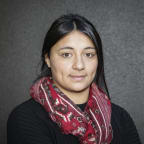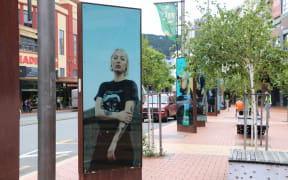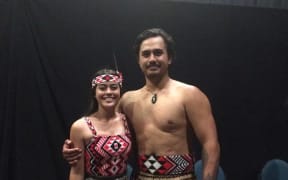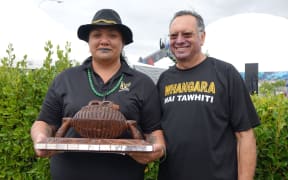With Te Matatini just around the corner, central Wellington has set up its own "haka hub", a place where the public can access more than 70 years of historic kapa haka footage.
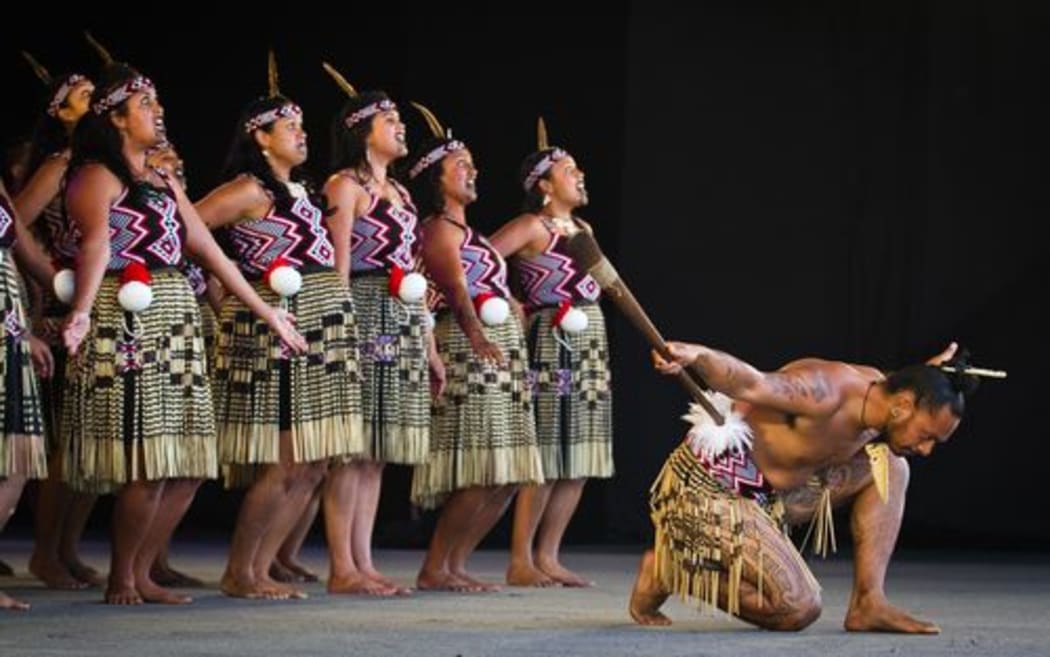
Te Whānau-ā-Apanui from eastern Bay of Plenty were judged the outright winners of Te Matatini, held in Christchurch in 2015. Photo: Te Matatini
Auckland-based kapa haka group Te Waka Huia stunned audiences in 2002 with their version of the Circle of life, a song made famous in the film The Lion King.
If you've never heard of it, you've probably never been to Te Matatini before.
But step inside Ngā Taonga Sound and Vision's screening room on Taranaki Street in central Wellington and you'll find a treasure trove of waiata and haka, dating back as early as 1940.
The biennial festival began in 1972 and was last held in the Wellington region in 1998.
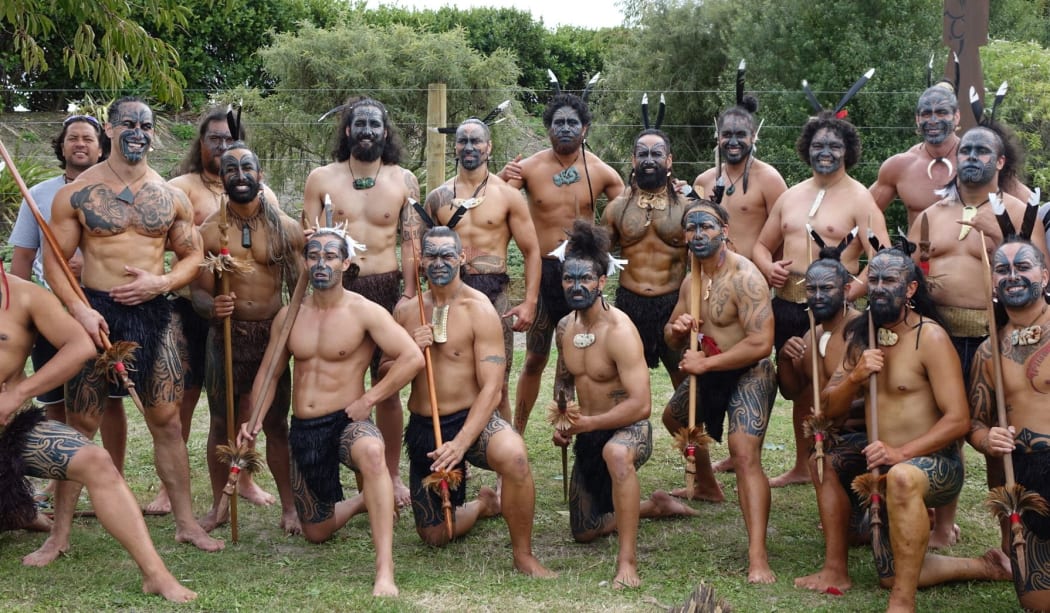
Te Mātārae I Õrehu after performing at Te Matatini in Hastings in 2017. Photo: RNZ / Shannon Haunui-Thompson
Te Matatini chief executive Carl Ross said kapa haka had evolved a lot since then.
"In the early 70s and prior it used to be the real big man on the stage with the big puku and being able to roll that puku around and stamp that foot and I suppose as it's evolved a lot of teams are right into their training prior to doing the festival because the brackets now are so athletic.
"I'm one of the ones that stick to the more traditional style of haka, five-actions stuff. You do see a lot of contemporary movements coming in now and that's the whole process of evolution isn't it?
"But you've got the traditionalists that are still there and they're still doing the same actions and it's good to have those that do that, and then you see the other ones that love to explore."
Mr Ross joined Te Waka Huia in 1988, and performed at the top level for several years. He said the "haka hub" allowed him to re-visit those years, and watch his favourite groups of the past come alive again.
"As a kaihaka (performer) you sit down and you watch teams and you just love every aspect of kapa haka itself. Every group has something that stands out. I remember the whakaeke of Ngāti Rangiwewehi on the awa of Waikato; I think I've watched it a million times."
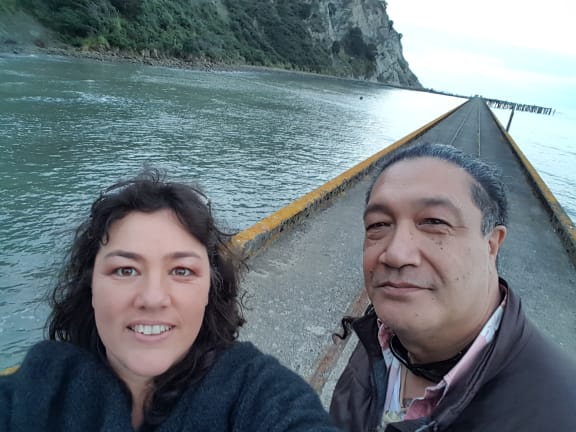
Honiana Love and Haka Hub curator Lawrence Wharerau. Photo: supplied
Haka Hub curator Lawrence Wharerau wasn't giving too much away about the project, but he said visitors would get to see some old faces again.
"Audio-visual material is a very powerful way of evoking a memory and connecting people with the past [and] it gives us an opportunity to see how far we have advanced or not.
"We might see Sir Āpirana Ngata in one of them."
He hoped the hub might inspire people who had never been to Te Matatini before to go along.
"This is like the Olympics of performing arts in New Zealand. The teams that are participating, they've been training for the past year, they had to get through their regionals and be elevated to the point where they can represent their region. Now they've got a crack at the big stage.
"I'd like to see that people get a wider appreciation that Māori isn't just about haka and Māori poking their tongues out."
The festival's opening pōwhiri will begin tomorrow morning, and on Thursday a new generation of kapa haka stars will take to the stage.
